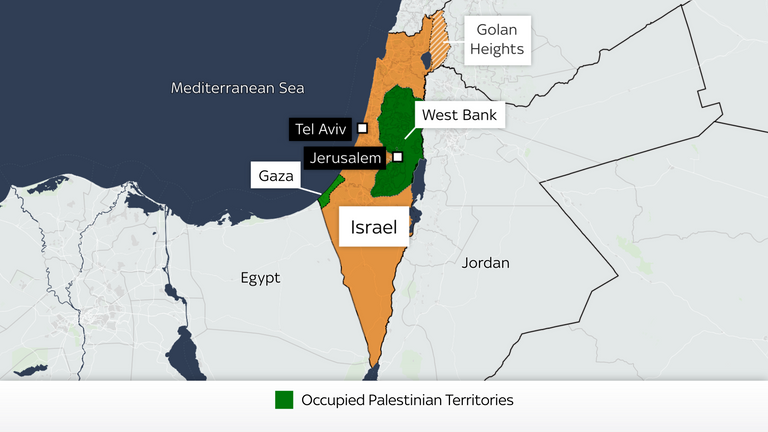One state solution for Israel Palestine conflict. Solutions for Israel Palestine conflict
In the enduring Israeli-Palestinian conflict, where the two-state solution has traditionally taken center stage, a less conventional approach, known as the one-state solution, has steadily gained attention. This alternative vision involves the creation of a unified state encompassing Israel, the West Bank, and the Gaza Strip, where all residents would enjoy equal rights, transcending ethnic and religious boundaries. This article delves deeper into the complexities of the one-state solution, its various proposed models, and the evolving debate surrounding.
The Proposed Models
The one-state solution, while a single concept, manifests in various models with unique mechanisms of operation. One of these models is the unitary state, echoing the historical era of Mandatory Palestine, where a single government would govern the entire territory. It would extend full citizenship rights to all residents, regardless of their background. Some Israeli advocates support a similar model with a twist – annexing the West Bank while leaving Gaza separate. This would result in a Jewish and democratic state, with a significant Arab minority.
Another model suggests the annexation of the West Bank by Israel while creating an autonomous Palestinian region within it. This approach aims to balance Palestinian aspirations for self-governance with the need for Israel to maintain its Jewish character.
A third model proposes a federal state structure, featuring a central government overseeing federative districts. These districts could be designed based on ethnic or geographical divisions, with some predominantly Jewish and others Palestinian. This model aims to strike a middle ground between a unified state and decentralized governance.
The last model introduces the concept of an Israeli-Palestinian confederation, where two independent states share powers in specific areas. This fusion of two-state and one-state concepts presents a unique opportunity for cooperation between both nations, addressing concerns from both sides.

Lack of Official Recognition
While the one-state solution has garnered interest in academic circles and among segments of the population, it remains conspicuously absent from official diplomatic efforts. International diplomatic channels, including those of the United States, predominantly advocate for the two-state solution as the path to peace. The two-state paradigm has historically been the linchpin of official peace negotiations, making the one-state vision a divisive and complex topic.
Public Opinion
Public opinion on the one-state solution is diverse and evolving. A 2017 survey revealed varying degrees of support for this approach: 36% among Palestinians, 19% among Israeli Jews, and 56% among Israeli Arabs. This divergence in opinion reflects the complex nature of the Israeli-Palestinian conflict and the search for viable solutions.
Unique Israeli Perspectives
Within Israel, a segment of the population is exploring the one-state solution as an alternative path to peace. Some Israeli government representatives have proposed the annexation of Palestinian-majority areas, such as Umm el-Fahm, to the new Palestinian state. However, this idea raises concerns among Palestinians, as it could potentially isolate these areas from the rest of Israel, jeopardizing the Israeli citizenship of its Arab residents.
A Response to Stalled Negotiations
The growing support for the one-state solution is partly attributable to ongoing roadblocks and challenges in the two-state negotiations. The relentless expansion of Israeli settlements and the political climate have raised doubts about the feasibility of the two-state approach. As a result, many now consider the one-state solution as an alternative path to resolving the conflict.
Former U.S. Vice President Joe Biden, in 2016, pointed to Israeli Prime Minister Benjamin Netanyahu’s settlement policies as potentially leading to a “one-state reality” in which Israeli Jews would no longer constitute the majority. This shift in demographics is seen by some as a potential catalyst for reevaluating the one-state concept.
Conclusion
The one-state solution has become a topic of increasing debate and interest, with several developments highlighting its relevance. A 2017 survey showed varying levels of support among different groups, with Palestinians, Israeli Jews, and Israeli Arabs showing varying degrees of acceptance. This divergence in opinion reflects the complex and multi-faceted nature of the Israeli-Palestinian conflict.
The one-state solution has attracted the attention of specific segments within Israel as well. Some Israeli government representatives have explored the idea of annexing Palestinian-majority areas within Israel to a new Palestinian state. However, this proposal has raised concerns among Palestinians, who worry about the potential isolation of these areas from the rest of Israel, possibly jeopardizing the Israeli citizenship of Arab residents.
The ongoing challenges in the two-state negotiations have contributed to the growing support for the one-state solution. The expansion of Israeli settlements, coupled with the shifting political landscape, has raised doubts about the feasibility of the traditional two-state approach. Many now see the one-state solution as a viable alternative to the conflict’s resolution.
Former U.S. Vice President Joe Biden has pointed to Israeli Prime Minister Benjamin Netanyahu’s settlement policies as a potential factor leading to a “one-state reality” in which Israeli Jews may no longer constitute the majority. This demographic shift has led some to reevaluate the feasibility and desirability of the one-state concept.
In conclusion, the one-state solution, while secondary to the two-state approach, is gaining recognition and support as a viable alternative in the Israeli-Palestinian conflict. Its diverse models and the evolving debate surrounding it reflect the shifting dynamics in the region. While many challenges persist and the one-state solution remains divisive, it is increasingly considered a contender in the quest for a lasting and equitable peace in this complex and longstanding conflict.

